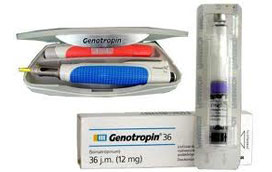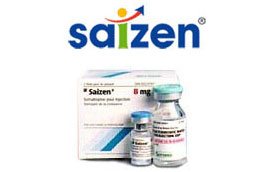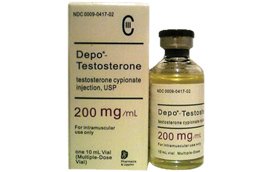Long Term Benefits of HGH

There are both short and long term benefits of HGH replacement therapy. It is human nature to typically think of things as either long-term or short-term experiences. Yet sometimes an experience can encompass both categories, such as receiving treatment with human growth hormone injections. When young, the endocrine system secretes sufficient quantities of growth hormone to support continued physiological development during the years of aggressive growth. Once we have reached our full growth potential, our bodies continue to rely on this potent hormone to sustain the metabolic efficiency that is essential to the proper function of our primary organs and systems. However, many people have no concept of how critical it is to their health to maintain adequate growth hormone levels circulating in the bloodstream. When an adult’s body chemistry slows down and results in a reduced output of natural growth hormone, it often represents a biological event that will eventually be followed by a range of undesirable symptoms; and it is the frustrating nature of those symptoms that causes many adults to start thinking about getting the benefit of long-term growth hormone (GH) replacement therapy. It is undoubtedly the stubborn weight gain; increased fatigue; emotional changes; hypertension and other degenerative ailments associated with decreased metabolic function that causes adults with low GH to search for a medical solution that can return them to their former levels of healthiness, energy and vitality. So in today’s digital era, they often begin their search by going online to learn more about the types of adult hormonal disorders that are frequently responsible for producing these symptoms. One is sure to find countless pages of results that in some way pertain to the short and long term effects of human growth hormone. That occurrence in itself can produce a short-term dilemma: who or what to believe when confronted by an overabundance of unfiltered information and hyped-up sales messaging? Fortunately, there are licensed and experienced physicians capable of providing the medical perspective on hormone replacement therapy that can also be found online.
Long Term Effects of HGH Therapy
Tomorrow is one of the most hopeful words in our language and people with adult growth hormone deficiency (AGHD) symptoms are hoping to improve the many tomorrows ahead of them with long term effects of HGH therapy. Would anyone actually prefer to continue to wake up every day encumbered by a chronic and progressive diminishment of their vitality and energy if they had a choice? Medically indicated and supervised hormone replacement programs are all about providing that choice to people who have developed an adult-onset symptomatic hormone deficiency. One of the most frequent complaints that hormone specialists hear from their patients is that the overall quality of their lifestyle, as well as their healthfulness, has declined with the onset of their deficiency symptoms. They also report feeling unmotivated and even helpless to make any lifestyle changes that would actually provide any improvement since GH deficiency reduces the effectiveness of eating healthier and getting more exercise. Both hormone doctors and researchers have been tracking what are the long term effects of human growth hormone and thus far there has been no evidence to suggest that its medically controlled use is harmful. However, what has been strongly suggested through the results of clinical trials and current patient data is that GH replacement can reverse the physiological decline caused by its premature loss and enhance a patient’s overall health profile in many significant ways. Biosynthetically created growth hormone mimics the body’s naturally generated form in every way and provides the same extremely important HGH long term benefits that affect biological cell stimulation and rejuvenation, helping to keep the body’s organs in a healthier state and it systems functioning efficiently. Increased lung capacity; greater immunity; higher HDL and lower LDL; and the improved function of the heart and kidneys are just a few of the ongoing results of therapy have been clinically verified by several national health institutions and organizations.
Short and Long Term Effects of Human Growth Hormone
Establishing long-term values is a function of gaining emotional maturity, yet it is not an immediate but rather an evolving process, similar to the one that allows adults to gain both the short and long term effects of human growth hormone injections therapy. While the initial physiological benefits of restocking their deficient GH levels will be experienced by most patients within the first few weeks of their therapy, the health assets will continue to accumulate and multiply as their doctor monitored program continues. During the past decade alone, considerable research has been conducted on the effects of bio-identical HGH injections on GH deficient adults who are middle-aged, those of elderly age, and on healthy adults of various ages who have normal growth hormone levels. Presently, only patients who have a medically substantiated condition of GH deficiency are legally allowed to receive a prescription to receive the long term effects of HGH injections, but medical researchers are dedicated to discovering if it is medically appropriate for other individuals to have access to all of their health-sustaining benefits. Given the proven ability of growth hormone supplementation to mobilize and eliminate stubborn excess fat stores; rebuild damaged muscles; and sustain healthy organs, among numerous other critical biological functions, the members of the medical research field who are devoting their careers to biotechnology expect to uncover many new and important therapeutic uses for bioengineered human hormones as well as other extremely beneficial bio-identical substances. They will also continue to carefully study the long term effects of growth hormone injections scientifically and anecdotally among an aging US adult population that is facing the uncharted new health challenges that will accompany their unprecedented longevity. It is the unique needs of this evolving demographic that make today’s continuing medical research into the health advantages of bio-similar hormone replacement therapy so compelling and expedient.
Long Term Effects of Using Human Growth Hormone
Some believe that the scientific community gathers knowledge at a faster rate than that by which society accumulates wisdom. Yet perhaps the current digital age of information is changing that dynamic. Before the Internet existed, how would interested individuals have gathered science-based health information pertaining to the long term effects of using human growth hormone injections? Even the country’s best medical libraries of just twenty years ago could not provide the volume of research data and published findings, not to mention complete pharmacology information that can be accessed online by millions of people today. However, many adults continue to suffer needlessly due to their confusion about hormones and the roles that they serve in both facilitating healthful living – and in promoting healthful aging. Maybe it is time to retire the phrase “anti-aging” and for people to accept aging as a natural and healthy process instead of viewing this inevitable and potentially very rewarding life stage as the enemy. Wouldn’t it be more rational and productive for people to view the benefit of long-term growth hormone (GH) replacement therapy as a medically tested means to enjoy the benefits of healthy aging rather than as a weapon to be utilized to preventable the unpreventable, which is the privilege of living an extended lifetime? In watching television for just a few hours, an individual will almost certainly be confronted by multiple advertisements aimed at products and services for maturing adults with messaging that is more than mixed – it is nearly bi-polar. From adult incontinence products and walk-in bathtubs to Cialis, Viagra and facelift surgeries, it is impossible to discern if advertisers believe that all people who are past the age of 65 or 70 are either one fall away from a nursing home or one procedure or medication away from reclaiming the decades younger versions of themselves. In real life, the challenges and rewards of healthful aging – like most issues – are not colored in black or white, but are instead are colored by various shades of grey. Hormone specialists believe that the long-term effects of HGH and testosterone replacement programs can enhance and promote truly healthy maturity.
The Benefit of Long-Term Growth Hormone (GH) Replacement Therapy
To experience a healthful maturity, it is essential to protect the continued vigorous function of the body’s organs, tissues and cells. For people who have developed an adult-onset endocrine disorder, this may require receiving the benefit of long-term growth hormone (GH) replacement therapy. However, quite often individuals who might be exhibiting some of the sign of GH deficiency initially try to self-treat their symptoms with nutritional and vitamin supplements that are rarely perceived to deliver on all of their promises. Aside from that, the across-the-counter sale of these non-prescription supplements represents a multi-billion dollar industry that is not subject to the same regulations that manufacturers of prescription drugs must comply with, so consumers are required to perform their own extensive research to avoid purchasing products that many professional nutritionists have bluntly referred to as “garbage.” They urge consumers to carefully read the fine print on the labels of these products, claiming that they will be shocked at what they contain, such as the use of trans fatty acids, fillers, animal by-products and other unhealthy additives in the ingredients. By contrast, all that is used in providing patients with the long term effects of growth hormone injections is pharmaceutically pure and authentic bio-identical HGH, which must be legitimately prescribed for them by a licensed physician. The replacement of deficient GH levels does what no vitamin or supplement, even those of the highest quality and purity, can ever do: it restores hormonal balance, which is incredibly important to reaching and sustaining optimum adult healthfulness. Hormone therapy doctors also know that the long term benefits of HGH injections simply cannot be duplicated or provided in any significant way by so-called oral sprays, lozenges or other non-prescription products that claim to be human growth hormone supplements – the entire field of hormone biotechnology has already proven conclusively that the only form of human growth hormone that provides physiological benefits in the medically prescribed injectable form.
Long Term Health Effects of Human Growth Hormone
Much has been written and discussed regarding the relative costs associated with using injectable HGH, and what many adults are asking is if the long term health effects of human growth hormone treatments are actually a long-term value proposition for people who have been diagnosed as having an excessive GH deficiency. So what is the demonstrated value of using HGH therapy to restore an adult’s physiologically balanced growth hormone supply? Well, answering that question appropriately would require knowledge of the value that the individual asking it places on sustaining excellent health along with the extent of their commitment to it. How many of the individuals who spend significant sums of money on expensive vitamins and other nutritional supplements still make poor dietary choices and fail to get enough exercise? The fact remains that it takes a certain level of personal commitment to sustain good health throughout one’s life, with or without the long term effects of using human growth hormone therapy. Yet those who make that commitment are usually rewarded with measurably extended years of the vitality and stamina that can fuel a greater capacity to enjoy life. That is the kind of long-term value that many individuals will gladly invest in, because they understand that very little is more important to their future lifestyle fulfillment than taking the best possible protective care of their health. So in the present, the development of a GH deficiency can be medically corrected by a program of therapy, which provides the patient with both the short and long term effects of human growth hormone injections. When combined with healthy dietary and exercise routines, it can provide the ultimate solution to sustaining vitality all throughout life and what could possibly represent a greater health value than that?
Long Term Effects of HGH Injections
In a Swedish study that was completed last year on the value of growth hormone therapy for adults with GH deficiency, it was concluded that the long term effects of HGH injections therapy is a cost-effective therapy based on factoring in the impact that AGHD has on both earlier morbidity and reduced life quality in men and women. As the study’s authors noted, the escalation of healthcare costs across the globe has made economic evaluations increasingly more essential in the making decisions that determine the funding of both new and currently available treatment drugs. In the study, which was divided into two control groups, one group that was using injectable human growth hormone and one group that was using a placebo, it was found that the untreated subjects represented greater healthcare costs and reduced work productivity due to illness-related absenteeism. The subjects using treatment gained both the long term health effects of human growth hormone and stayed healthier in the short-term as well. Critical cost factors such as the annual average healthcare costs attributed to disease; intervention costs; and higher morbidity risks were thoroughly studied as well as issues affecting QoL (quality of life). Utilizing extensive data and modeling assumptions, the study’s conductors carefully examined all of the pertinent ways in which the long term benefits of HGH therapy represented a cost-effective solution to making and keeping individuals with AGHD healthier. Biosynthetic human growth hormone has been approved for medical use in Sweden since 1994, and for the past 20 years it has been successfully prescribed for adults who exhibit a pronounced GH deficit. As a nation that has long been known and admired for its commitment to a healthy and high quality of life for all of its citizens, the Swedish study has confirmed that growth hormone replacement therapy is both a value-added and cost-effective treatment option for adults who are suffering from their symptomatic GH deficiency.
Long-Term Effects of HGH and Testosterone
Typically, it is men who have the most questions about the long-term effects of HGH and testosterone deficiency, even though it is possible but not nearly as common for women to also experience an unhealthy decline in their body’s testosterone supply either during or shortly after the mid-life years. Statistically, since it is fairly common for men to develop both Low T and GH deficiency concurrently, it is not unusual for hormone doctors to prescribe a therapeutic program that includes replenishing both of these critical hormone supplies for their male patients. They know that studies have shown decreases in either one of these hormones often results in decreases in the other one, and they have noted that a number of the same physiological symptoms are shared in both types of deficiency. Yet how do doctors know which patients to prescribe what type of treatment for, or how much therapy to prescribe for their patients? Before any patient can experience the long term effects of HGH injections and/or testosterone injections, their physician will have serum tests performed that will measure the current GH and testosterone levels that are present in their bloodstream. Since the loss of either of these hormones can be responsible for causing negative health effects, if the doctor has reasonable clinical evidence to suggest that both of these hormonal supplies could be deficient in the patient, it is common to have both types of blood testing performed simultaneously. Hormone specialists are aware that approximately 40% of all men are affected by Low T symptoms during adulthood, which is statistically significantly higher than the percentage of men are affected by a medically treatable GH loss. Yet when low levels of one type exist, it is often clinically prudent to assess the levels of the other since replacing either of these hormones has been shown to provide clear beneficial advantages to the patient’s condition of healthfulness. The short and long-term effects of HGH and testosterone therapy prescribed together are based on what researchers have already learned about the symbiotic relationship they share, and further study will provide additional in-depth data.
What Are the Long Term Effects of Human Growth Hormone?
Additional clinical trials and research studies are also ongoing so that medical professionals can learn more about what are the long term effects of human growth hormone deficiency on adult health. While researchers have already used science and technology to established the link between GH deficiency and higher heart disease risks; higher fracture risks due to decreased bone mineral density; and lapses in memory and concentration, the search for additional health consequences is a continuing one. Perhaps it has been partially fueled as a response to the most conservative segment of the medical community that continues to disdain most adult growth hormone replacement programs as gratuitous anti-aging treatments rather than the legitimate medical treatment that many other members of the same community believe it to be. By continuing to study the long term effects of HGH therapy, researchers hope to eventually put an end to all doubt regarding its therapeutic legitimacy. Instead of resisting new health solutions that have been made possible by biotechnology, or dismissing them as unnatural efforts to improve QoL, isn’t it more compassionate and productive to achieve consensus about their legitimate medical applications? It could be that some of the more dogmatic traditional medical practitioners have allowed themselves to become out-of-touch with the frame of mind that much of the current patient population now has. Unless there is valid and definitive proof that the long term effects of using human growth hormone treatments are detrimental instead of beneficial, most individuals with AGHD would like to have that option medically available to them. Since there have been so few patients that have reported any significant decline in their wellness during the period that they were using GH therapy, it would appear medically and ethically reasonable to allow adults with hormone deficiency to make their own choices about receiving treatment with the help of professionally qualified hormone replacement doctors.
HGH Long Term Benefits
Many prestigious health foundations are committed to performing studies that will serve as a valuable basis for furthering future medical research and scholarship. In 2007, one of these leading research organizations published the results of a study on HGH long term benefits. It was shown that after 24 months of treatment, the adults in the study reported significant increases in their psychological well-being in reference to experiencing increased emotional self-control, and decreased episodes of anxiety or mild depression. The subjects also reported ongoing improvements in their measures of general health and vitality. Perhaps because studies on hormone replacement are ongoing, some people mistakenly assume that most of the medical data and clinical results that have been compiled on its use are preliminary; however, research and trials involving the long term health effects of human growth hormone injections have been taking place for decades. Clinical investigators have been combing through the results of patients receiving subcutaneous somatropin therapy for GHD for a surprising number of years and in a five-year study that was concluded in 2011, its record for safety and efficacy was reinforced. It is probably another common aspect of human nature to assume that something is automatically new when we hear about it for the first time, but medically prescribed growth hormone replacement therapy is can no longer be considered new treatment. What is definitely news is that more individuals with symptoms of deficiency are beginning to ask what are the long term effects of human growth hormone injections, primarily because both professional and personal reports of the positive results have substantially multiplied and gone viral online in recent years. Yet these positive results are not news to hundreds, if not thousands, of doctors and medical research professionals.
Long Term Effects of Growth Hormone Injections
So while top-notch research on the long term effects of growth hormone injections continues, can today’s patients feel completely confident in their health-enhancing properties? There has been no medically conclusive evidence produced to date that has determined that using biosynthetic human growth hormone injections under the appropriate medical supervision is physiologically harmful even during its long-term use. Now that AGHD has been become fully recognized as a treatable clinical entity that is characterized by a number of distinct symptoms, potential patients are paying more attention to the medical protocols that are being used to produce successful results. Studies on the 6-month, 2-year, 5-year, and 10-year use of a prolonged GH replacement program have all reached the same conclusions about HGH long term benefits, which is that they can be consistently and safely gained through a therapeutic replenishment program that is properly prescribed, administered and monitored. To maintain those benefits, it is also a treatment that should be viewed as a potentially lifelong commitment; however, this is a decision that is ultimately decided by the patient’s results over the course of their therapy. Based upon the finding of 9-year study on the long term effects of HGH therapy, patients using a treatment regimen continuously maintained their gains in vitality and energy while patients who discontinued their therapy after the study’s conclusion experienced small yet significant health declines along with a reduction in some of the areas related to their ongoing quality of life. Experienced hormone doctors understand how to prescribe replacement programs for their patients that will be well tolerated; represent low risk; and successfully mitigate their GH deficiency symptoms.




















